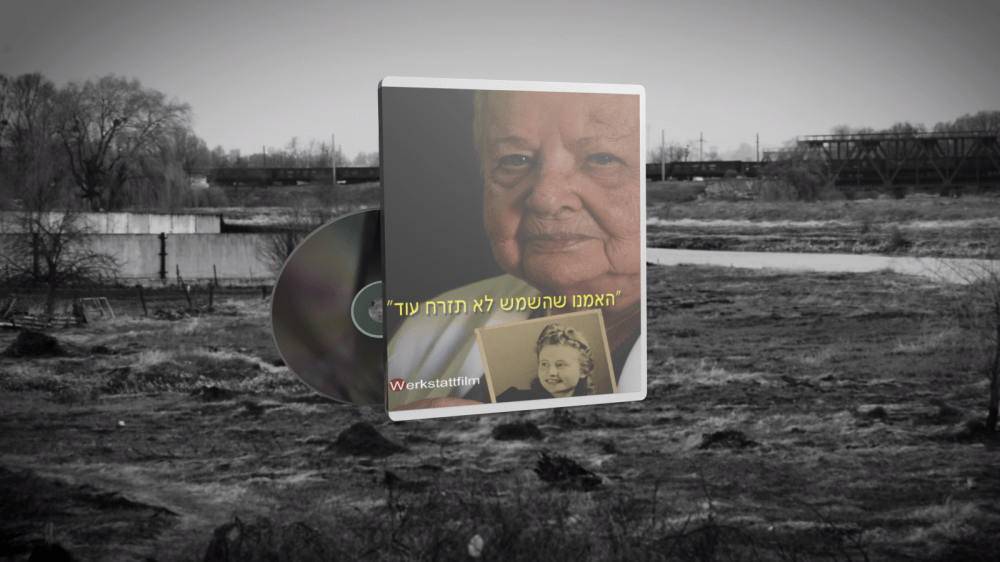
Shop
DVD „We Believed the Sun Won’t Rise Again“
€25,00
Before World War II, the town of Kovel, situated in the western part of Ukraine, had a Jewish community of enormous diversity and importance. During the German occupation, which lasted from June 1941 until 1944, the Jewish population of Kovel was almost totally annihilated.
Beschreibung
Description:
Directed by: Farschid Ali Zahedi
Camera: Daniel Schmidt and Farschid Ali Zahedi
Editing: Daniel Clören and Farschid Ali Zahedi
Germany/Israel/Ukraine 2015
Running time: 100 mins.
Original languages German, English and Hebrew with English subtitles
A Werkstattfilm production
Before World War II, the town of Kovel, situated in the western part of Ukraine, had a Jewish community of enormous diversity and importance. During the German occupation, which lasted from June 1941 until 1944, the Jewish population of Kovel was almost totally annihilated.
Two men played a large part in this crime: Erich Kassner, head of the local German administration, and Fritz Manthei, officer in the German police. Twenty years passed before they were tracked down by the German authorities and put on trial for their crimes. The trial before the regional court in the German town of Oldenburg lasted for thirteen months and was one of the most extensive ones that ever took place there.
Since 2011, the Werkstattfilm team has been conducting research on this almost forgotten crime, the extermination of the Jewish community of Kovel, and the trial in Oldenburg. Neither of these topics have been thoroughly examined by scholars or the media.
The documentary film that has now been produced is based on the complete court files of the trial and film material recorded in the town of Kovel. Interviews conducted with witnesses of the events and their relatives, many of whom live in Israel today, also play a central part. Several of these witnesses had already testified in court during the trial and illustrate through their very personal accounts the horrific events that took place in Kovel, as well as the significance of the trial in Oldenburg. These accounts are complemented by an interview with one of the judges who presided over the trial.
The film gives an exhaustive historical account: Beginning with the history of Kovel before 1941, documenting the events during the German occupation, it moves on to detail the criminal investigation that led to the arrest of Kassner and Manthei and their trial in Oldenburg, their time in prison, and their early release after both men were pardoned before serving their whole sentences.
Special attention is given to the fate of three Jewish women, who play central roles in the film. It also addresses the story of a doctor in the German army who showed unique moral courage. Finally, it highlights the activities of a network of Nazi sympathisers who supported the two perpetrators.





